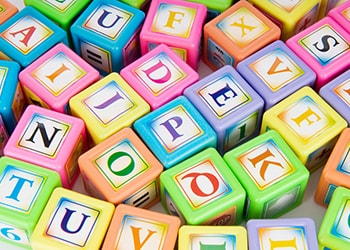Language Acquisition: Ages And Stages

What Are Morphemes?
Morphemes are the smallest units of sound or combination of sounds that make up words in speech and have meaning. There are many different types of morphemes. Morphemes at times are mistaken for words or syllables, however, this is not correct. Morphemes can either be a base or an affix (affix can be a prefix or a suffix).
An affix cannot stand alone, whereas a base can. A prefix comes at the beginning of the word, while a suffix comes at the end, both fall under the category of affix. A base is a morpheme that gives a word meaning, in other words, it’s the actual word itself. There are morphemes that can stand alone and these are called “free morphemes,” whereas those morphemes that cannot stand alone are called “bound morphemes.”
Inflectional morphemes are those that can only be a suffix, whereas derivational morphemes change the meaning of the word, part of the speech or both. Some other types of morphemes are allomorphs (variation of a morpheme where the sound pronounced is different than the letter written), homonyms (morphemes that are spelled the same with different meanings), and homophones (morphemes that sound alike with different meanings and spellings).
Some Examples Of Different Types Of Morphemes:
- Base: cat, dog, potato, chair, etc.
- Prefix: the ”in” in “inspect,” “un” in “unhappy.”
- Suffix: the s in “cats,” ed in “barked.”
- Free morpheme: cat can stand on tis own and it carries a meaning.
- Bound morpheme: “s” without a word attachment such as “cats.”
- Inflectional morpheme: English language has 7 inflectional morphemes creating a change in the function of the word; past tense -ed, plural -s, possessive -s, third person singular, past participle -en, present participle -ing (all are verb inflections), comparative -er and superlative -est (adjective and adverb inflections).
- Derivational morphemes: these often create new words; such as un in “unhappy.”
- Allomorphs: such as final -s in the words dogs, cats, pens (all are /s/ but are pronounced as a /z/)
- Homonyms: bear (animal) vs. bear (to carry), bank (the river), vs. bank (place to deposit money).
- Homophones: bear vs. bare, break vs. brake, cite vs. sight vs. site, bye vs. buy.
Headquarters
8501 Wilshire Blvd. #336
Beverly Hills, CA 90211
Call Us
info@omixtherapies.com
Hours
Mon-Fri
9:00am – 6:00pm
